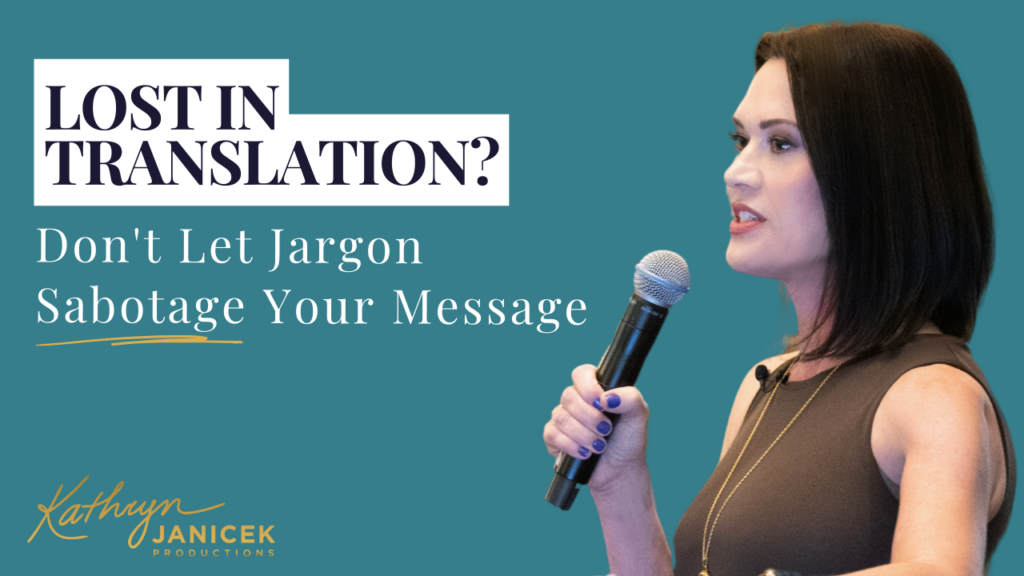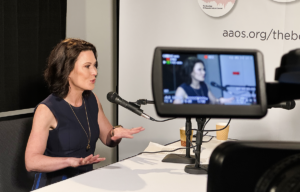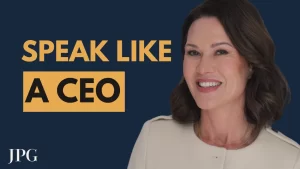You’re really smart.
I know it. You know it.
Is it possible to be TOO smart for your audience?
Perhaps the smartest thing you can actually do is ditch the intellectual language, industry jargon, technical lingo, and acronyms.
The Janicek Performance Group was recently in New York for a week, media training the New York Blood Center.
This organization does some really important work – work that legitimately saves lives – and they need to leverage media opportunities to send a message to the public.
“Donate Today, Save Lives Tomorrow.”
But what happens when they get up in front of an audience or are sitting down across from a reporter and they ask you to explain what they do?
They are the EXPERTS in blood donation.
Just like you are the expert in your field.
But the general public – the people they want to be HEARD by – are not.
Using technical language and industry jargon is a surefire way to confuse and lose your audience.
Picture this: you’re passionately advocating for your cause, pouring your heart into your message, only to be met with puzzled looks or worse, an empty audience. It’s like trying to navigate a maze blindfolded – frustrating and maybe even impossible.
If you are …
- In the media
- Answering questions from the media
- Giving the media sound bites or quotes to promote your organization and spread your message
- Trying to get something from an audience
- Trying to move an audience to take action
- Advocating for something
… you need to be careful with your language. Otherwise, you can completely miss the mark.
How you speak with your team or others in your industry is not how you should speak to your audience.
When you speak in terms that only insiders understand, you risk alienating your audience and undermining the impact of your message.
You know your industry in and out, but the general public doesn’t. Here are the dos and don’ts.
Do:
- Be clear and concise in your communication. Great, clear, accessible communication is the best way to reach your audience, persuade them, gain their trust, establish a relationship, and rally them for a cause.
- Bridge the gap between your expertise and your audience’s understanding. Put yourself in the shoes of your audience and speak to them in a way that will resonate .
- Test your message out on someone who doesn’t know anything about your industry. is the best way to ensure your messaging is clear. Deliver your message and if they don’t understand the point you are trying to convey, it’s time to go back to the drawing board.
- Hire a media coach or trainer to help you perfect your messaging. At Janicek Performance Group, we are pros at workshopping your messaging.
Don’t:
- Use acronyms. Spell out terms instead of assuming everyone understands abbreviations unique to your field.
- Use jargon. Use everyday language that is accessible and easily understood by a broad audience.
- Use complicated language. Simplify complex concepts and explanations without sacrificing accuracy.
The next time you need to communicate with the media or any audience at all, ditch the jargon, speak plainly, and remember – your brilliance is best shared when everyone can understand it.
The more relatable you are, the more impact you’ll have.
After all, the most powerful message is the one that lands.





